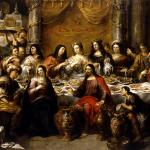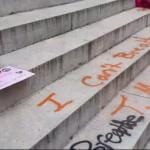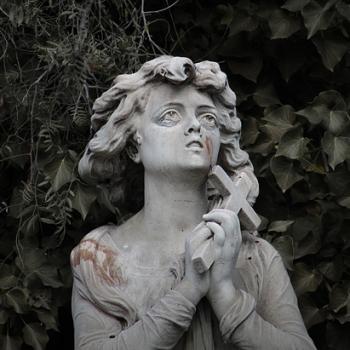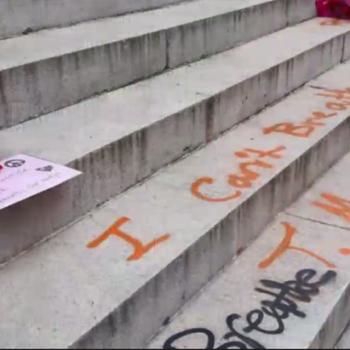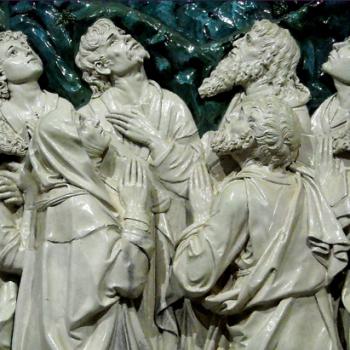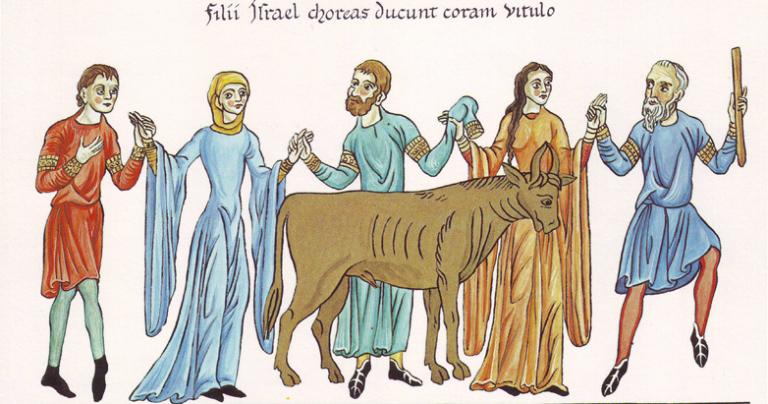
Mea culpa, mea culpa, mea maxima culpa.
It was so easy for me. After several years of constantly wrestling with the question, “what is required to truly be part of the Body of Christ?” it was simply handed to me. All I had to do is take a break from my busy days to show up in a church, listen to the familiar Word of God, and then the True Body of Christ would be placed on my tongue, and I knew He was part of me and I was part of Him. Simple, beautiful, mystical, effortless.
Almost effortless, that is. I might have pressing deadlines or meetings scheduled at work that interfered with going to midday Mass, but that was fine, there was always tomorrow. Weekends this wasn’t the case and I always had plenty of time options, and once a week is all that was required to be “in communion” with the holy catholic church. When I had small children it was anything but effortless to try to bring them along and keep them from being disruptive, but receiving the Host was still effortless, and I tried to leave my noisy cherubs out of my Eucharistic worship as much as possible.
It’s ironic how my dedication to comm-union actually separated me from union with others. I almost always ate lunch and my desk instead of with co-workers so I could have time to go to midday Mass, or catch up from coming in a little later after morning Mass. To avoid the distractions and embarrassments of bringing littles to Mass, my husband and I used to often go separately and alone on Sundays. If and when we did bring them to church, one or both of us inevitably ended up physically separated behind a glass wall from the rest of the congregation, while our progeny wailed or wriggled. It also meant never going to church with my Protestant parents or vice versa, and losing touch with the tight-knit Christian community in which I was a part during college.
The lack of communi-ty in the Catholic parishes I attended always bothered me, but I told myself it was worth the trade-off to have Real Communion. No matter where I was, no matter how welcoming or cold the priest or parishioners were, no matter whether I was regularly involved in the life of the parish or just dropping in somewhere for one half hour of my life, I could receive the Eucharist and take consolation in it. Cheap grace was always on offer with almost as much ubiquity as Starbucks, and I got in the habit of grabbing it daily to caffeinate my sleepy soul.
What happens when a crisis keeps us from attending Mass and receiving consecrated Hosts? It forces us to think about what we were really doing there. Were we incarnating one dimension of our communion in the mystical Body of Christ, or were we merely participating in Eucharistic worship? That is, were we worshiping the Sacrament of the Eucharist itself more than the Divine life that it signifies and conveys? For my part, I think that for many years I was.
Millions of people have had to face this question before this month, because of crises of many kinds and proportions—spouses without church sanction, survivors of abuse from leaders in their own church, people who are imprisoned by uncaring state authorities or personal guardians, communities without regular or any priests, and more. But because of the global COVID-19 pandemic, now the vast majority of us who have been privileged to have unfettered access to Catholic Eucharist most of our lives are being forced to fast from it for the rest of this Lent (and quite possibly beyond).
Our reaction to this forced fast reveals our priorities, especially if we are able to find some “loopholes” to the fast. What is more important: having tangible access to a consecrated Host, or how my actions impact other members of the Body of Christ? When showing up at a drive-through communion stop or Adoration in sparsely populated pews means we might be unknowingly spreading a deadly virus to the next worshiper, we don’t get to rest easily in the idea that Eucharistic worship is necessarily the same thing as Communion. We are forced to choose between our own consumption of tangible sacramental consolations and the health of our brothers and sisters in the Body of Christ. Will we sacrifice other people’s lives to Sacraments that we have elevated to idols?
I am distressed to see how many Catholic clerics are encouraging idolatry in these challenging and clarifying times. Many are encouraging people to leave their homes to pray in front of tabernacles or kneel in cramped confessional boxes, serially spreading agents of death among trusting and obedient parishioners. One parish near me is still pressing its parishioners to fill all the spots in its planned 40 hour devotion! Like Aaron suggesting that the Israelites hand over their gold so he could form an idol to implore for guidance and salvation, these new Levites will not take responsibility for their own greed and blasphemy, and will end up killing thousands.
The biological character of COVID-19 is proving to be a sword of truth, cutting through pious habits to reveal the thoughts and intentions of the heart. Who will accept the Eucharistic fast and the cuts of the Surgeon, undergo a good personal examination of conscience, and rise out of the ashes with a contrite heart to find new ways of being in communion with each other? And who will continue to point towards a golden tabernacle or monstrance and say “here is our God—though thousands fall around me, in this do I trust”?
I see plenty of people who are intentionally sharing communion with their neighbors, friends, and family; who are giving thanks for the interconnective technology we have today that enables us to prudently distance our flesh for a while without succumbing to loneliness or starvation. No one is denying that our bodily connections matter; indeed, when this ends we are likely to value them more than we have in decades. This is the whole point of fasting, is it not?
I am optimistic that those who fast today will feast joyfully in their holistic communion with each other when this extended Lent ends. But I doubt they will want any of the death-dealing Levites to be part of this feast. I certainly will not consent to be confined to their temples and cut off from my brothers and sisters outside any longer. As last Sunday’s Gospel reminded us, “the hour is coming when you will worship the Father neither on this mountain nor in Jerusalem… The hour is coming, and is now here, when the true worshipers will worship the Father in spirit and truth, for the Father seeks such as these to worship him. God is spirit, and those who worship him must worship in spirit and truth.” (Jn 4:21, 23-24)

